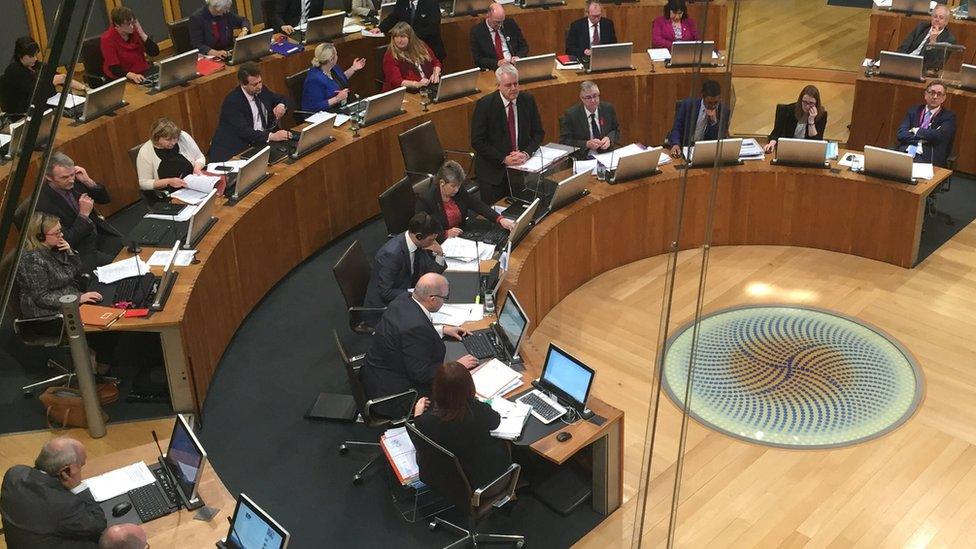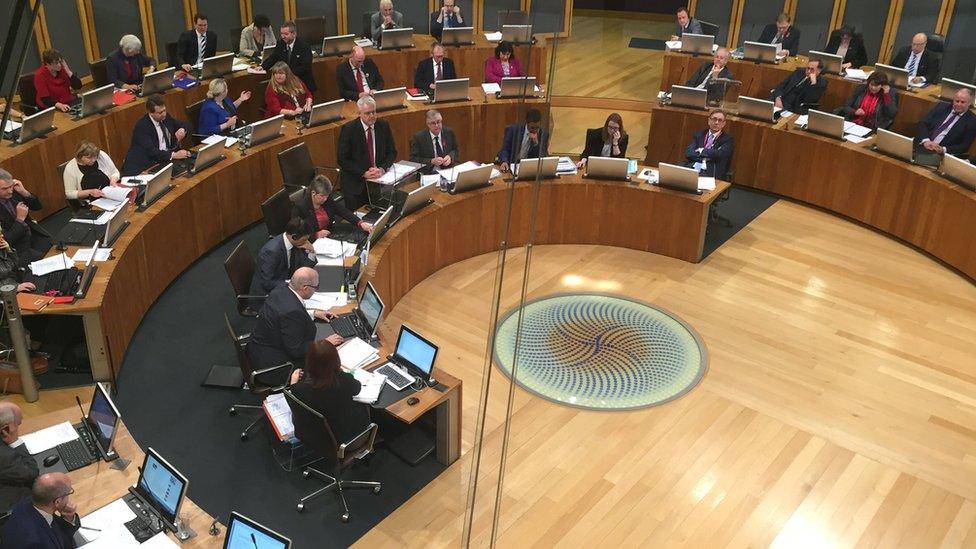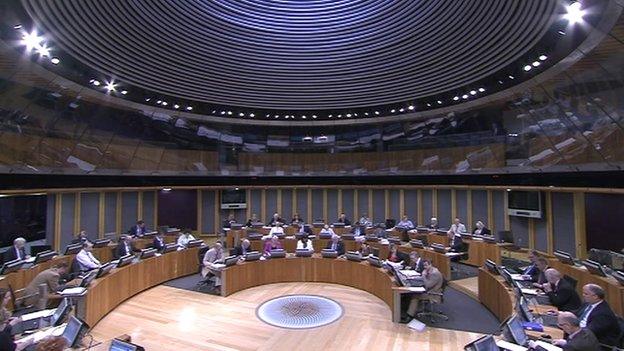Welsh Assembly panel to examine case for more AMs named
- Published

Prof Laura McAllister says the capacity of the assembly to carry out its work has long been a subject for debate
Professor Laura McAllister is named as chair of an expert panel to examine the case for having more assembly members to handle its increasing workload.
The group will also examine whether the way they are elected should change, and whether to reduce the voting age to 16.
The panel also includes Sir Paul Silk, who previously led inquiries into the scope of the assembly's powers.
Prof McAllister said they would prepare "robust, evidence-based recommendations".
Presiding Officer Elin Jones said she was "delighted" to announce "such an expert and highly qualified panel".
"The devolution of powers to the Assembly and a move to a reserved powers model signals a new constitutional basis for the Assembly, with important new responsibilities," she added.
"The Assembly finally has autonomy over its own affairs to help make this institution a stronger, more accessible, inclusive and forward-looking legislature that delivers effectively for the people of Wales."

Prof McAllister said: "The capacity of the Assembly to carry out its vital functions holding the Welsh Government to account, making laws for Wales, agreeing Welsh taxes, and representing the people of Wales has long been a subject for debate.
"The Panel and I look forward to exploring the evidence, and preparing robust, evidence-based recommendations for the Llywydd [Presiding Officer] and the [Assembly] Commission to consider."
The panel members are:
Prof Laura McAllister (Chair) - Wales Governance Centre at Cardiff University
Prof Rosie Campbell - Birkbeck University of London, and Professor Sarah Childs - University of Bristol (joint membership)
Rob Clements - former Director of Service Delivery at the House of Commons
Prof David Farrell - University College Dublin
Dr Alan Renwick - University College London
Sir Paul Silk - Chair of the Commission on Devolution in Wales 2011-2014 and former Clerk to the Welsh Assembly
A political reference group made up of people nominated by the assembly parties will also be set up to be a "sounding board" for the panel and to help "ensure its work culminates in workable recommendations".
The panel is due to publish its recommendations by autumn 2017 to allow any changes to be made in time for the 2021 assembly election, subject to political support.
There have been longstanding calls from some political parties for an increase in the current total of 60 members to deal with the assembly's workload, in light of new powers over taxation and other issues as a result of the passing of the latest Wales Bill.
However Rachel Banner, who led the 2011 referendum campaign against increased law-making powers for the assembly, has said any increase in AMs should be put to a public vote.
In November, a report by the Wales Governance Centre and Electoral Reform Society (ERS) said there would need to be changes to the electoral system if the number of AMs was to be increased.
Dr Owain ap Gareth, campaigns and research officer for ERS Cymru said the setting up of the panel was "a vital step forward for Welsh democracy and paves the way for a stronger Senedd".
However, he spoke of "a need to bring the public along too in these discussions and engage with voters themselves on these key issues".
- Published3 January 2017

- Published30 November 2016

- Published14 November 2016

- Published22 January 2015
